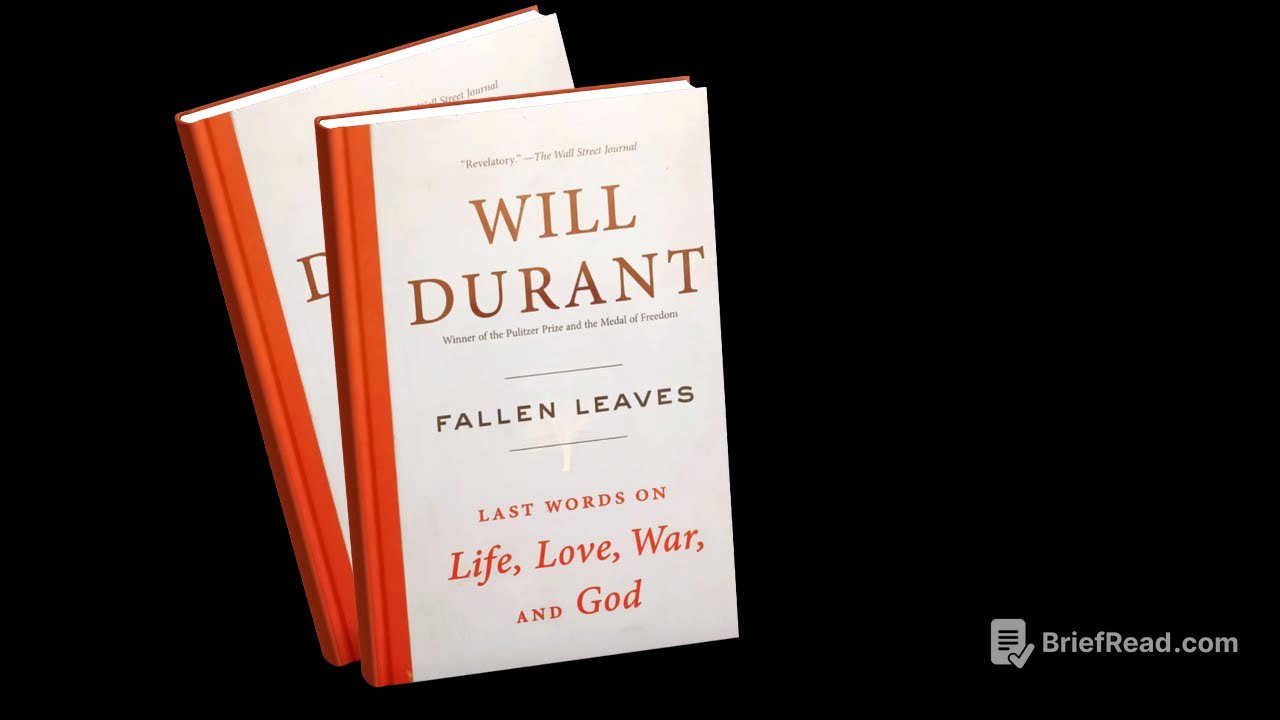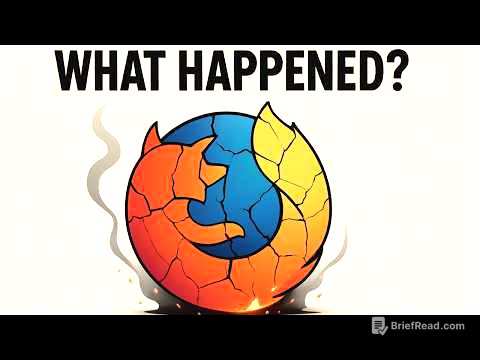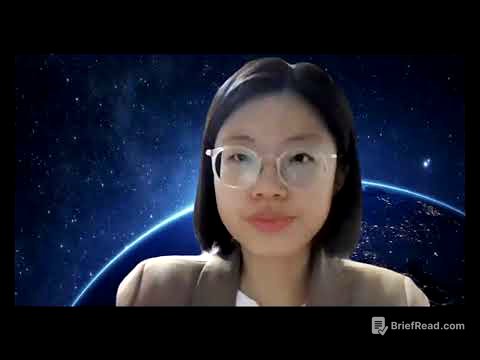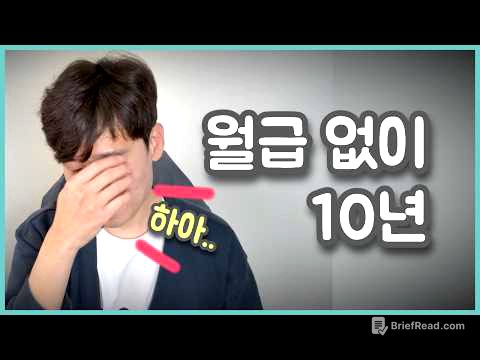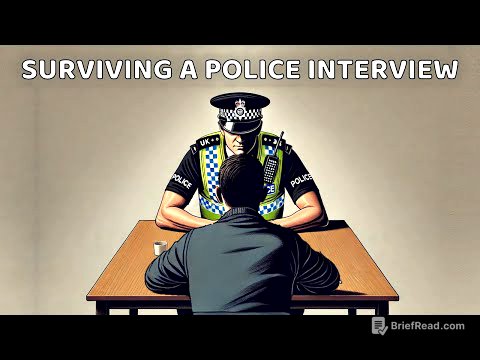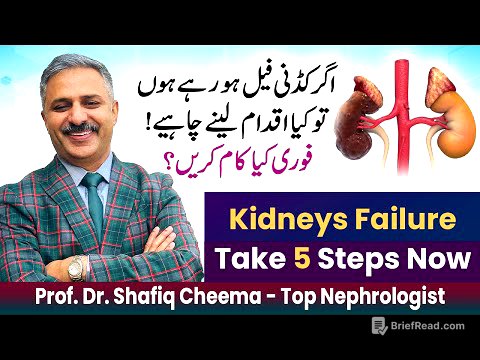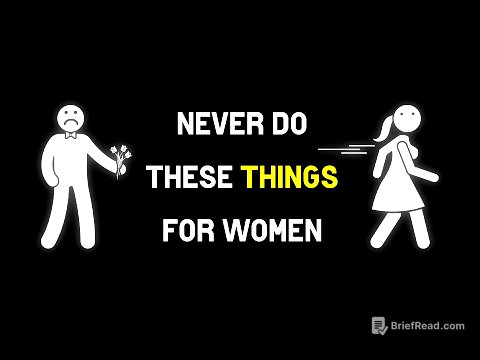TLDR;
This YouTube video summary encapsulates the reflections of a 95-year-old individual on various aspects of life, youth, aging, death, religion, morality, politics, art, science, and education. The speaker shares personal insights gained over a lifetime, emphasizing the importance of understanding human nature, balancing tradition with progress, and fostering a society that values both individual freedom and collective well-being.
- Life's journey and its stages
- Religion and morality
- Politics, art, science, and education
Preface [0:00]
The author, at 95 years old, reflects on the nature of aging and the accumulation of knowledge. Despite a lifetime of reading and hearing various opinions, the author still feels hesitant to express personal thoughts, acknowledging a sense of being stuck in old ways and struggling to understand the changing world. The author writes in response to requests for insights on life and destiny, aiming to express feelings in simple language, recognizing life as a complex secret. The goal is to find a path through life's experiences and history, understanding the future in light of the past, and giving meaning to desires and feelings. The author hopes to provide a comprehensive view of human life, discussing philosophy, ethics, politics, religion, and art, while acknowledging the limitations and potential inaccuracies of this personal journey.
Our Life Begins [4:18]
The author discusses the love for children, viewing them as extensions of ourselves and embodiments of what we aspire to be. Children are admired for their simplicity, truthfulness, and unfiltered expression of feelings. Newborn babies, despite their initial appearance, hold infinite possibilities and represent the potential for growth and wonder. The author reflects on the journey of a child, from experiencing love and joy to facing challenges and ultimately confronting death. Children learn by observing and mirroring their parents, absorbing both positive and negative behaviors. The author suggests that children embody both the beginning and end of philosophy, with their curiosity and desire to grow holding hidden secrets. The author emphasizes that life is a continuous effort of trying, suffering, and creating, and that the true essence of life is found in the laughter and growth of children.
On Youth [9:29]
Youth is described as a time when work becomes more important than play, and individuals learn to depend on themselves rather than family. Young people possess self-respect and independence, enjoying freedom and seeking new experiences. They are characterized by high energy, a love for action, and a belief in themselves, often shunning limits and embracing adventure. Enthusiasm stems from new and risky endeavors, and youth are easily bothered by rules and discipline, preferring noise and activity. The author notes that youth is a time of enjoyment, unburdened by past sorrows or future fears, with the world appearing beautiful and worth exploring. True happiness is found in open-heartedness, and this period is often when people experience real life.
On Middle Age [19:49]
Middle age begins after marriage, marking a shift from fun to work and responsibility. Passion becomes bound by societal rules, and the poetry of life turns into simple prose. The author notes that the timing of this transition varies across cultures, with some societies experiencing middle age earlier due to early marriage. Every age has its advantages and disadvantages, and a balanced life incorporates qualities from childhood, youth, and old age. Middle age is characterized by completing tasks, applying science and reason to improve life, focusing on the present, and bringing discipline and stability. The biggest advantage of middle age is achieving the most in life, with enthusiasm and excitement replaced by peace and power.
On Old Age [29:10]
Old age is depicted as a state where the body's limits are reached, accompanied by a decline in mental and emotional abilities. The capacity to learn new things diminishes, and memories begin to fade, leading to the repetition of old stories. The author notes that nature provides a gradual reduction in pain and fear to ease the acceptance of death. As the feeling of life decreases, the desire to live also diminishes, with peace becoming the primary pursuit. The author questions whether a life of repeated pain and suffering is worthwhile, pondering the purpose of existence. The greatest tragedy of old age is seeing the world with sadness, making it difficult to find praise.
On Death [33:44]
Death is presented as the only certainty in life, necessary for the progression of life and the emergence of new generations. It is described as a cleaning process, where the old makes way for the new. Parents cheat death through their children, passing on their strength and ensuring the continuation of their form. Wisdom comes with age, allowing individuals to understand everything in its real place. The author emphasizes that life never gives up, and even though individuals may fail, life always wins. The wisdom of each generation accumulates, and life continues to move forward.
Our Souls [38:28]
The author explores the concept of the soul, discussing its relationship to matter, space, time, sensation, perception, mind, and consciousness. Matter is defined as that which occupies space, while the mind encompasses all our experiences, memories, and ideas. Sensation is any feeling from outside or inside, and perception is when the reason for feeling is known. The author suggests that the mind and thinking are separate from matter, as they do not occupy space. Consciousness is the awareness that helps us understand the difference between sleeping, remembering, and feeling. The soul is described as an internal force that works in every body, cell, and organ, often associated with the breath.
Our Gods [53:38]
The author reveals a religious skepticism, expressing disbelief in a God who rewards or punishes. While acknowledging order in the universe, the author also sees many things that seem disordered. The author often feels a cosmic spirit or plan in nature, but also notes nature's ruthlessness and cruelty. The author finds it hard to believe that a merciful and powerful God wills all the sadness, war, and violence in the world. The author notes that the concept of God changes with human understanding and morality, with each era and society having its own God. The author suggests that life itself could be the real God, as it changes, learns, and molds the world according to its wishes.
On Religion [1:04:40]
The author reflects on personal experiences with Christianity, recalling fond memories of nuns and priests who provided religious training. The author notes a gradual shift in religious thinking after reading Darwin and Spencer, but retains respect for the ethics of Christ. The author believes that the death of God and the end of Christianity is the greatest tragedy in Western history. The author suggests that religion and philosophy should reach a compromise, where educated people help simple people without criticizing religious beliefs, and the church avoids stopping freedom of thought. The author observes the growing influence of the Catholic Church and suggests that it could play a role in shaping society.
On a Different Second Advent [1:15:46]
The author discusses the prediction that the criticism of Christianity and democracy will lead to their destruction. The author notes that in many places, democracy is only enjoyed by the rich, and dictatorship is emerging in many countries. The author questions whether the era has truly begun, and suggests that the heart of Western man is filled with despair due to the loss of faith and youthful dreams. The author proposes a prescription for religion, emphasizing moral passion and compromise. The author suggests that religion should soften the heart, awaken courage, and promote charity.
On Religion and Morals [1:21:52]
The author defines religion as prayer to supernatural powers and morality as the ideals and rules of conduct that guide human behavior. The author notes that morality comes from custom and tradition, and that a person should adapt their habits according to society. The author acknowledges the Church's argument that the decline of moral values is due to people moving away from religion. The author reflects on personal criticisms of the Church, but questions whether morality alone can control antisocial impulses. The author suggests that the Industrial Revolution has had a significant impact on morality, leading to changes in family structure, economic competition, and the spread of information.
On Morality [1:35:39]
The author suggests that the decline in morality is actually a change in morality, as the sacred rules of ancient times are gradually ending. The author notes that life has become urban, youth has become longer, families have become smaller, and education has increased. The author emphasizes the importance of balancing stability and freedom, and that the role of the elderly is to stop and balance, while the role of youth is to change and innovate. The author advises youth to keep themselves pure and not be afraid of being made fun of. The author believes that relationships outside marriage should be avoided, and that parents should provide financial support to their children but also have a say in marriage decisions.
On Race [1:49:22]
The author reflects on personal involvement in the Civil Rights Movement since 1940, discussing the Declaration of Interdependence and its principles of mutual respect and harmony. The author acknowledges naivety in understanding the depth of racial problems, noting the pain and discrimination faced by Black people. The author admits to not having solutions to these problems, as they arise from human nature. The author suggests that people don't trust strangers easily and tend to avoid things they are unfamiliar with.
On Women [1:54:35]
The author expresses admiration for women, praising their beauty and the role of hormones in creating attraction. The author notes that beauty lies in our eyes and desires, and that it feels great to see the beauty of a woman without any physical desire. The author acknowledges that some women have flaws, such as being greedy, possessive, or jealous, but emphasizes their sacrifices in taking the new generation forward. The author sees a woman first as a girl, then as a bride, and finally as a mother, each stage with its own beauty and challenges. The author admires the courage and strength of women, particularly mothers, and suggests that real divinity lies in them.
On Sex [2:05:01]
The author explores the attraction to women, noting that even in old age, their beauty has the same effect. The author suggests that the attraction is due to hidden things, and that concealment makes every appearance special. The author discusses the theory of evolution, suggesting that the desire for sex became very strong as organisms wanted to have children. The author notes that nature is concerned with only eating and reproduction, and that all other art, music, and literature are ways to increase the breed. The author believes that marriage was created to control power, and that sexual feelings should remain within the right limits.
On War [2:09:52]
The author reflects on the history of war, noting that humans have been fighting for thousands of years. The author questions whether war will always remain and explores its causes, including psychological, biological, economic, and political factors. The author suggests that the habit of fighting is deeply seated in human nature, strengthened by the need to find food and partners. The author notes that as groups grow, they fight for land and resources, and the desire for power leads to war. The author emphasizes the importance of understanding and solving the reasons for war, and that peace requires planning and organization.
On Politics [2:25:45]
The author reflects on a 1929 article criticizing American democracy, acknowledging that it was one-sided and hasty. The author notes that American democracy has had many successes since then, and that leaders have shown honesty and vision. The author discusses the welfare state, acknowledging its shortcomings but emphasizing its necessity for humanity and to save the country from class war and foreign competition. The author suggests that the American economy progresses when the purchasing power of the people keeps growing, and that the government should distribute wealth to maintain this balance.
On Capitalism and Communism [2:37:28]
The author discusses personal journey from being a Roman Catholic and Republican to becoming an agnostic and socialist. The author reflects on a trip to Russia in 1932, which shattered hopes for communism. The author notes that communism at that time was a war economy, and that the Russian government was trying to convince its people that they were living beyond their condition. The author suggests that both capitalism and communism have shortcomings, but their mutual collision has reduced many evils. The author believes that the average American person is happier than their communist comrade, and that both systems will become similar in the future.
On Art [2:47:17]
The author admits to being an outsider in the art world, having never created any art work. The author expresses doubts about today's new artists and the strange things that are confused and called art. The author questions why a person would work hard for years to create art, suggesting that it may be to show thoughts or feelings, create an identity, or beautify. The author notes that beauty is difficult to define and that everyone's understanding of it is different. The author suggests that the biggest problem in art today is that it shows just feel or attitude instead of beauty.
On Science [2:56:37]
The author acknowledges the rapid progress of science and finds it difficult to understand. The author respects scientists because they have checked what is believed to be true through repeated experience. The author expresses doubts about some scientific theories, such as the distance to the stars and the age of the Earth. The author believes in Darwin's theory of evolution but also sees that biology sometimes seems like a machine. The author laments that scientific genius is often directed towards battle rather than peace.
On Education [3:04:18]
The author discusses Herbert Spencer's question of what is the most useful knowledge, noting that Spencer was angry that children's time was wasted on old languages and cultures. The author suggests that the most important education is that which balances body and soul, citizen and country. The author outlines three big things that decide the success of studies: control over life, the joy of life, and understanding of life. The author emphasizes the importance of health education, character development, and teaching children to respect family life.
On the Insights of History [3:34:48]
The author emphasizes the importance of studying history from a broader perspective, seeing it as the story of humanity's journey from the jungle to civilization. The author suggests that history teaches us about human behavior and can save us from the misconceptions of our time. The author notes that history shows that human nature is old and that revolutions often lead to the same patterns of behavior. The author suggests that every life, society, and species is an experiment that must end one day. The author provides advice for improving American life, including promoting responsible parenting, providing affordable contraceptives, and strengthening family unity.
Conclusion [3:46:37]
The author reflects on the problems facing society, such as increasing numbers, family breakdown, racism, and corruption. The author emphasizes the importance of treating each other well, understanding each other, and maintaining a balance between the young and the old. The author suggests that the real energy of the country lies in the tension between the young and the old, allowing new ideas to transform old thinking.
